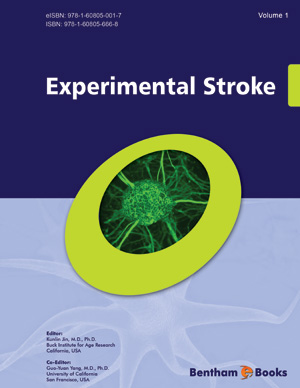Abstract
Cerebral ischemia causes a massive insult resulting in the eventual death of ischemia-affected neurons. Historically, research efforts have focused on the canonical cell death signaling pathways examining the activation of both caspase-dependent and -independent mechanisms to execute neuronal death due to ischemia. Recently, however, there is evidence that the calcium-activated protease calpain is able to mediate both neuronal death pathways. This chapter briefly outlines the intrinsic and extrinsic caspase-dependent pathways and the caspase-independent pathways. This is followed by a discussion of the role of calpain in abrogating the caspase-dependent pathway and instigating the caspase-independent pathway. Greater understanding of how neurons actuate delayed neuronal death will potentially lead to the development of viable therapeutics to diminish the negative neurological sequelae caused by cerebral ischemia.






















